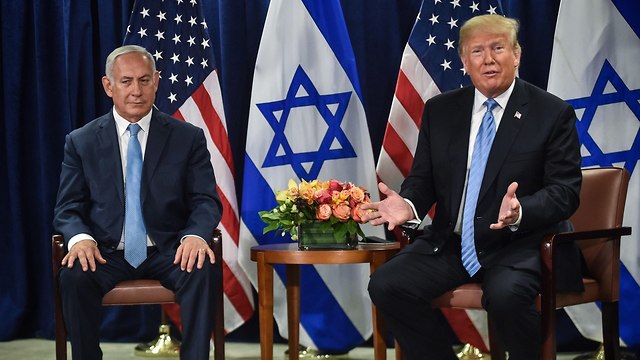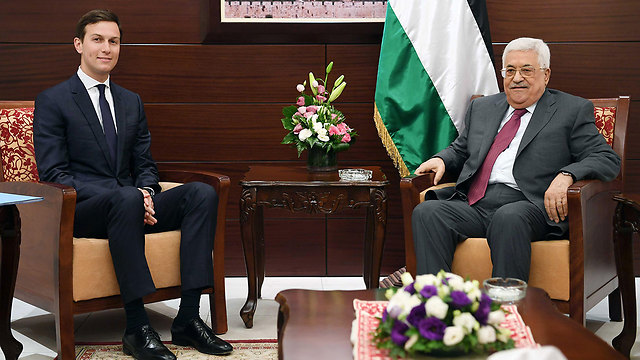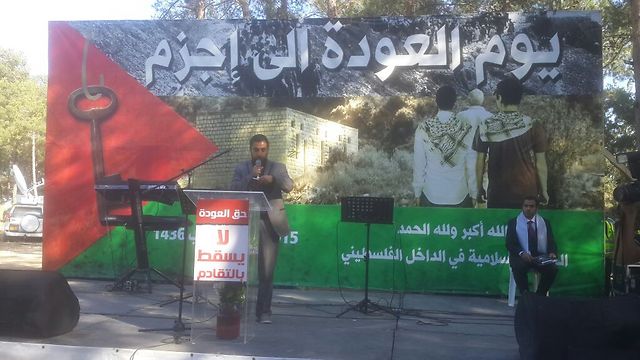
Let’s talk about the one-state solution
Opinion: Decades of futile peace negotiations prove that the two-state solution has failed and Trump’s ‘deal of the century’ will not change this. It is time to take another look at a one-state solution that will offer full equality to all its citizens.
The Trump administration will soon disclose the “deal of the century” for peace in the Middle East and the president’s adviser (and son-in-law) Jared Kushner has already revealed some economic aspects of the initiative to the wealthy Arab Gulf states that are expected to fund the deal.
Most are pessimistic regarding the deal’s prospects for success, especially in the Arab world. The history of the Middle East conflict is littered with peace plans that failed to deliver. The present plan that Kushner is presenting as unique, offers the Palestinians even less than previous plans and will not end the conflict. And with that in mind, the time has come to discuss a one-state solution.
Among Palestinians, there is disagreement regarding the redefinition of their national project. Polls show that the Palestinian street has lost faith in the viability of a two-state solution and many now seek a one-state solution.
But the success of a “one-state solution” has a number of obstacles, chiefly the opposition of most Israelis. In addition, there is an expansive web of vested interests among Palestinian Authority officials for a two-state solution and the Palestinian mainstream still insists on a national state based on the 1967 borders. These differences will continue for the foreseeable future.
Israeli Jews fear the demographic threat posed by a one-state solution to the conflict. The “ghetto” perception is still a decisive factor in Israeli public opinion —perhaps stemming from the experiences of the Holocaust.
On the other hand, the 1948 Nakba (catastrophe) casts a dense and painful shadow over the Palestinian consciousness and vision. Palestinians deal with issues of identity and symbolism much more than the surrounding populations. The paradox is that the Nakba and the Shoah are separated by only a few years.
A one-state solution has never been officially proposed as a permanent and fair solution to the conflict. On Israel’s part, it involved the rejection of Palestinian national identity and the implication has always been one of racism and discriminatory.
On the part of the Palestinians, a one-state solution was initially part of a plan to “redeem Palestine from the river to the sea” and defeat the Zionist project, but has since returned to center stage with the declining likelihood of a two-state solution ever being implemented. The context was always provocative and threatening and rode on the demographic fears of Israelis.
But now, in the context of the internal Palestinian disagreement over reviving and redefining the national Palestinian project, perhaps the time is ripe to unveil for the first time the one-state proposal in a different context.
The principles of both sides pose a major obstacle to this question, but it must be examined for the sake of the public narrative. Palestinian nationalism has failed. It has failed to liberate any land as well as in achieving even its minimum goals. Israel, on the other hand, has come to the realization that they cannot erase Palestinian national identity and remove them from the land of their ancestors.
So how can a one-state come about? I will present four principles that are crucial for the success of the proposal.
First, such a resolution will require a historic reconciliation between the two sides and mutual recognition of the rights of both sides to “historic Palestine.” This will be very difficult for the Palestinians, who albeit recognize the historic connection of the Jews to the land, but do not acknowledge their right to establish a state there, certainly not a Jewish state and certainly not the Right of Return for Jews throughout the world.
For the Jews, this means reexamining a central tenet of Zionism: “A land without a people for a people without a land.” A historic reconciliation will not be easy for descendants of the Holocaust or the Nakba, especially for the Palestinians who were not responsible for the Holocaust but suffered a Nakba with the founding of Israel.
Second, a one-state solution is predicated upon the idea of equal rights for all citizens: “one person, one vote.” Rights and obligations will need to be enshrined in stone: freedom of religion, the freedom to work and choose where to live, freedom of movement and the right to health care and education — all within the framework of a secular, democratic state.
Alongside that there will need to be national rights for both people’s and religious and cultural rights for all minority communities, two official languages, one capital city and a special administrator for the holy sites, consisting of representatives of the three major religions.
Third, the Rights of Return is to be granted to all of the 13 million Palestinians and Jews in the world, even if they don’t actually take advantage of this right.
Fourth, a solution needs to be found to provide housing for all. In order to address natural growth and ease the overcrowding in the major population centers, new cities should be built in the Negev, for example, by joint teams of Israelis and Palestinians.
A one-state solution may seem like a fantasy taken from a children’s film, but decades of futile peace initiatives and the inability to reach an agreement that satisfies both sides for an end to the century-old conflict, requires thinking outside of the box.
Ureib al-Rantawi is a Jordanian political analyst and researcher of Palestinian descent. He is the founder and director of the Al-Quds Center for Political Studies in Amman. This article was originally published in the virtual magazine of al-Hura. The concise version is being published under the auspices of the "Horizon for Arab Media" co-authored by the Van Leer Jerusalem Institute and the Ilam Center in Nazareth.
Translated from Hebrew by Y. A. Mayteles.
















